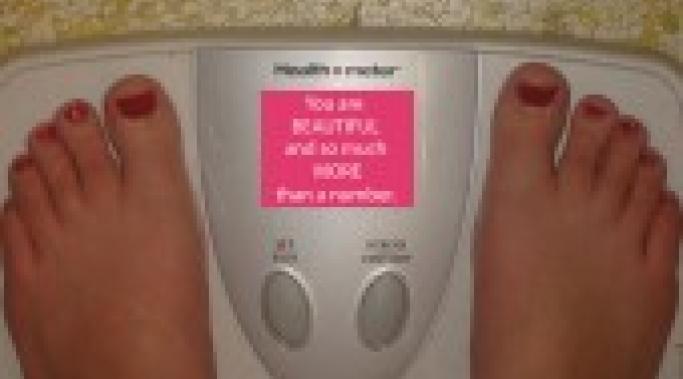National Eating Disorders Awareness Week 2011 ends Saturday, Feb. 26. Each year as it draws to a close, I always think about what I and others have gained from the presentations, articles, and other activities devoted to helping people understand eating disorders.
The prevailing message each year is one of hope and belief that eating disorders do not have to rule anyone's life.
Bulimia Treatment
National Eating Disorders Awareness Week 2011 starts this Sunday. This year's theme is "It's Time to Talk About It."
Talking about it means dispelling the myths surrounding eating disorders. Anorexia nervosa is not just an illness of upper middle-class and wealthy adolescent females. Bulimia nervosa is a deadly illness even if the person suffering from it is at a normal weight. Binge eating isn't just eating an extra cookie or two.
Eating disorders are real illnesses that can kill.
The road to eating disorder recovery has been a long and difficult journey for me. I often have felt lost in the fog of anorexia, unable to relate to my husband or other people. I have struggled, at times, to even think when I was in my worst restrictive periods. Often, I would wake up and wish I had died in my sleep. I was that tired of fighting anorexia.
Today, I feel triumphant. I reached my healthy weight this week, and my doctor says I am ready to move onto the next step of recovery: peeling off the layers of anorexia and discovering my true self.
On New Year's Eve 2009, I was with my husband, David, at a party. I ate without too much fear and had earlier wrote that I was on my way to complete recovery from anorexia nervosa in 2010.
It wasn't meant to be. However, I always try to live my life with hope. I vow that 2011 will be the year I recover. I also believe each one of you can make this the year you recover from your eating disorder.
Angela E. Gambrel Lackey, author of Surviving ED blog, talks about her struggles with Anorexia Nervosa during 2010 and offers advice about how recovery from eating disorders comes from learning to love oneself and wanting recovery for you.
When my husband, David, left in August, I was hurt and angry that he choose to walk out while I was struggling with anorexia nervosa. Many people thought I was too quick to forgive him when he returned a month later. But I thought about what anorexia had done to our marriage for the past three years. He also struggled as he watched the woman he fell in love with fifteen years ago whittle away to almost nothing.
When I first sought eating disorders treatment more than two years ago, I was certain I was going to come out of the two-week hospital stay completely free of anorexia. Several of the nurses told me that I would be successful at recovery because I only had had anorexia for about one year and therefore the disease hadn't yet become an integral part of my personality — yet. I walked out of the hospital fully believing all this, but I soon became engulfed in a fog of anorexic thoughts and behaviors within weeks of being discharged.
My husband, David, left me in August. Because of my anorexia. He couldn't handle it, after more than three years of dealing with a wife who seemed hell-bent on dying. This past spring, I spent six weeks in a partial hospitalization program that did very little for me but crush what little self-esteem I had left. I spent the summer depressed and anxious, mainly about the size of my body.
I immediately began restricting and purging (through laxative abuse) and soon lost all the weight I had gained while in the program. David soon lost all hope I would recover from anorexia. I had forgotten — again — that my eating disorder doesn't just impact me, but also my husband and loved ones.






